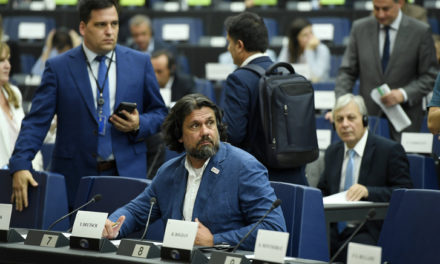Tibor Navracsics, who previously served as EU commissioner for education, culture and sports in Brussels, can return to the government as the minister responsible for regional development and the use of EU funds. Before that, he was also the head of the Ministry of Public Administration and Justice. During this time, Hungary's new constitution was drawn up, and it was then that Fidesz reformed the electoral system, HVG recalled.
Richard Hörcsik, the Fidesz-based chairman of the committee, reminded the minister candidate at the opening of the meeting that they are mainly interested in measures related to the European Union in his presentation.
At the hearing, Tibor Navracsics emphasized that the tasks of the ministry responsible for regional development and the use of EU funds are linked in such a way that
EU funds provide the engine for the main developments of the Hungarian economy.
He also considers it important that the resources of the next EU budget cycle emphasize regional development.
He also named the state secretaries who will assist him in his work:
Ágostházy Szabolcs, who will be responsible for European Union developments, Csaba Latorcai, parliamentary state secretary (on our cover photo), and Gábor Major, state secretary responsible for regional development.
From the point of view of labor organization, they will belong to the Prime Minister's Office, since Navracsics will not have a separate ministry, the article revealed.
According to the minister-designate, the most important task at the moment is the signing of the two partnership agreements, which enable the drawing of funds. They are also in constant contact with the European Commission regarding this and the operational programs. Among the latter, there are those that have already been approved, and they are confident that they will be able to sign the partnership agreement in the second half of the year.
Regarding the restoration fund, he also named the second half of the year, when "the details can be arranged".
"Hungary has always efficiently called on EU funds"
This is also important in order to have EU resources for regional development. Navracsics highlighted that "Hungary has typically always called on EU funds effectively, so it is not planning a significant transformation of its institutional system". The management authorities, on the other hand, are transferred to the Prime Minister's Office.
After that, he emphasized that "Hungary's regional differences are extremely large, and this must be dealt with in any case. At the same time, this does not mean that more developed areas - for example Budapest - do not receive funds, as their competitiveness must be improved".
Hungarian development policy performed excellently, but
"in the future, a territorially more sophisticated development policy will be needed, paying more attention to the profiles of individual areas".
He cannot promise that they will be able to solve this quickly, this is an activity for an entire mandate, it was said at the hearing.
Source: mandiner.hu
Featured image: Árpád Földházi/Mandiner













